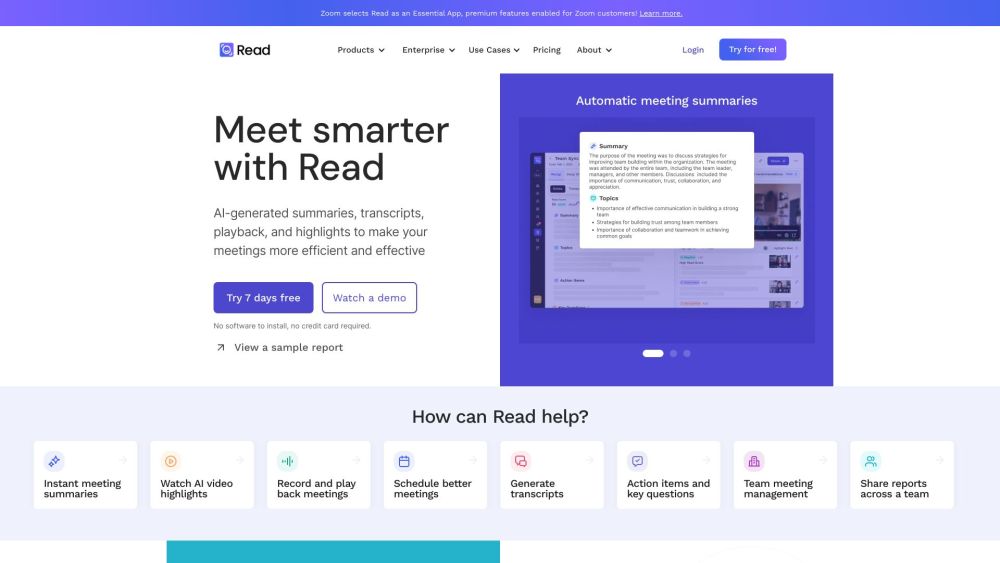A new bill introduced in the California State Senate threatens to stifle the state's flourishing artificial intelligence industry with excessive regulations and government overreach.
Senate Bill 1047, misleadingly titled the “Safe and Secure Innovation for Frontier Artificial Intelligence Models Act,” would impose strict restrictions and oversight on companies developing advanced AI models.
Impact on Innovation and Job Creation
If enacted, this bill could kill innovation, consolidate power among tech giants, and cost California thousands of jobs—all while failing to provide meaningful protections for consumers. Here's why:
Vague Definitions and Lack of Consumer Protection
The bill’s ambiguous language grants extensive authority to a newly established entity, the “Frontier Model Division,” to define and regulate perceived “hazardous capabilities” of AI models. Startups and researchers would struggle to obtain the necessary permissions to innovate, while compliance costs and legal risks would likely eliminate competition, leaving only the largest tech companies. Furthermore, the bill lacks concrete measures to address specific consumer harms, masking its intent to extend government control over a vital economic sector.
Free Speech and First Amendment Concerns
SB 1047 undermines core American values, including free speech and free enterprise. Software code is recognized as expressive speech under the First Amendment. Subjecting AI code to preemptive restraints and retrospective penalties compromises vital constitutional protections and sets a perilous precedent for government censorship of creative expression.
While the purported public benefits of SB 1047 are speculative, the predictable damages it would cause are alarming. Investment and talent could flee California for regions that embrace rather than vilify AI innovation, jeopardizing America's leadership position in artificial intelligence.
A Recipe for Stifling Innovation
The bill mandates that developers of broadly defined “covered models” adhere to a burdensome regulatory framework, including invasive annual certifications and government access to confidential information under severe penalties. This opens the door for bureaucrats to unilaterally define and ban any AI capabilities they deem “hazardous,” imposing fines up to 30% of development costs on violators. Such vague regulations create an atmosphere of uncertainty where businesses cannot confidently invest in innovation.
Government-Controlled AI Kill Switches
Most alarmingly, SB 1047 requires AI developers to implement “full shutdown” capabilities, granting government officials the authority to unilaterally disable any AI system they disapprove of. This raises serious concerns about abuse and infringes upon the rights of software creators, putting businesses at the mercy of bureaucratic whims.
The compliance costs imposed by this legislation would inhibit startups and small businesses, allowing only tech giants with legal resources to navigate its complexities. Rather than safeguarding consumers, SB 1047 would entrench monopolies by imposing overwhelming barriers on emerging competitors.
The Dangers of Centralized Control
The authors of SB 1047 exhibit both overconfidence and a fundamental misunderstanding of AI development. The notion that a small group of regulators can outperform the collective expertise of the world’s leading AI researchers is misguided. The Frontier Model Division is unlikely to be staffed with the necessary technical experts, resulting in decisions that inhibit crucial advancements.
By centralizing control over AI with those least equipped to manage its intricacies, SB 1047 could yield a cascade of unintended consequences, hampering the development of groundbreaking technologies and stifling entire research areas.
California’s Future at Stake
California is at a crossroads; it can either lead the AI revolution or risk becoming irrelevant. If the authors genuinely aim to protect consumers and promote responsible AI development, they should prioritize targeted regulations addressing specific consumer harms, such as data privacy and the protection of individual rights.
October 2023 has seen states like Texas attract companies seeking favorable business environments, further highlighting the need for California to foster a supportive AI ecosystem.
SB 1047 represents a significant threat to California's future as a global tech leader, and it must be opposed. State legislators should pursue a balanced AI policy that encourages innovation while safeguarding individual rights—one that aligns with California’s historic spirit of creativity and entrepreneurship.
The choice is clear: California must champion the AI revolution instead of stifling it. To secure its economic future and preserve its status as a tech powerhouse, SB 1047 must be defeated, paving the way for responsible and transformative advancements in AI.






